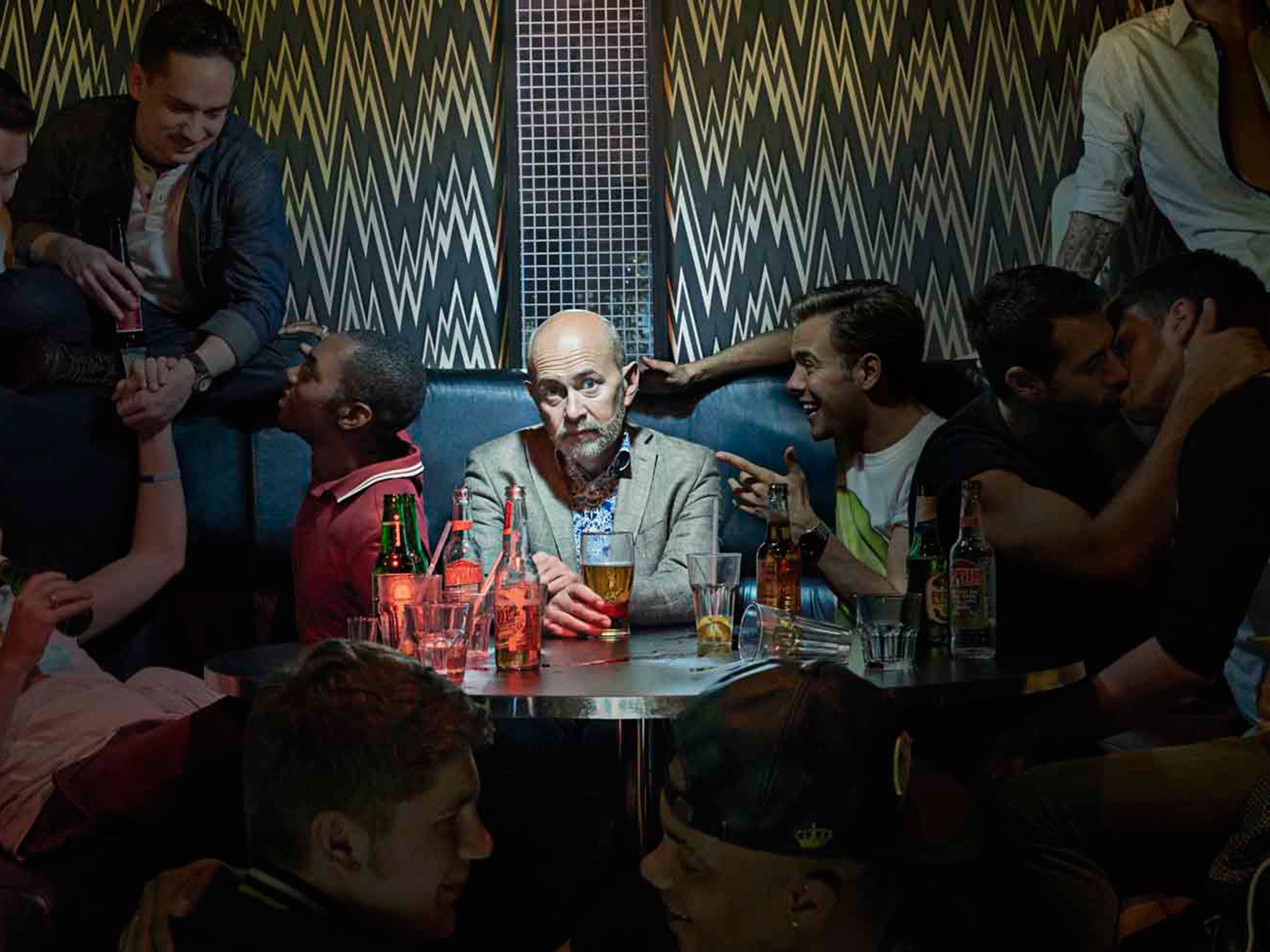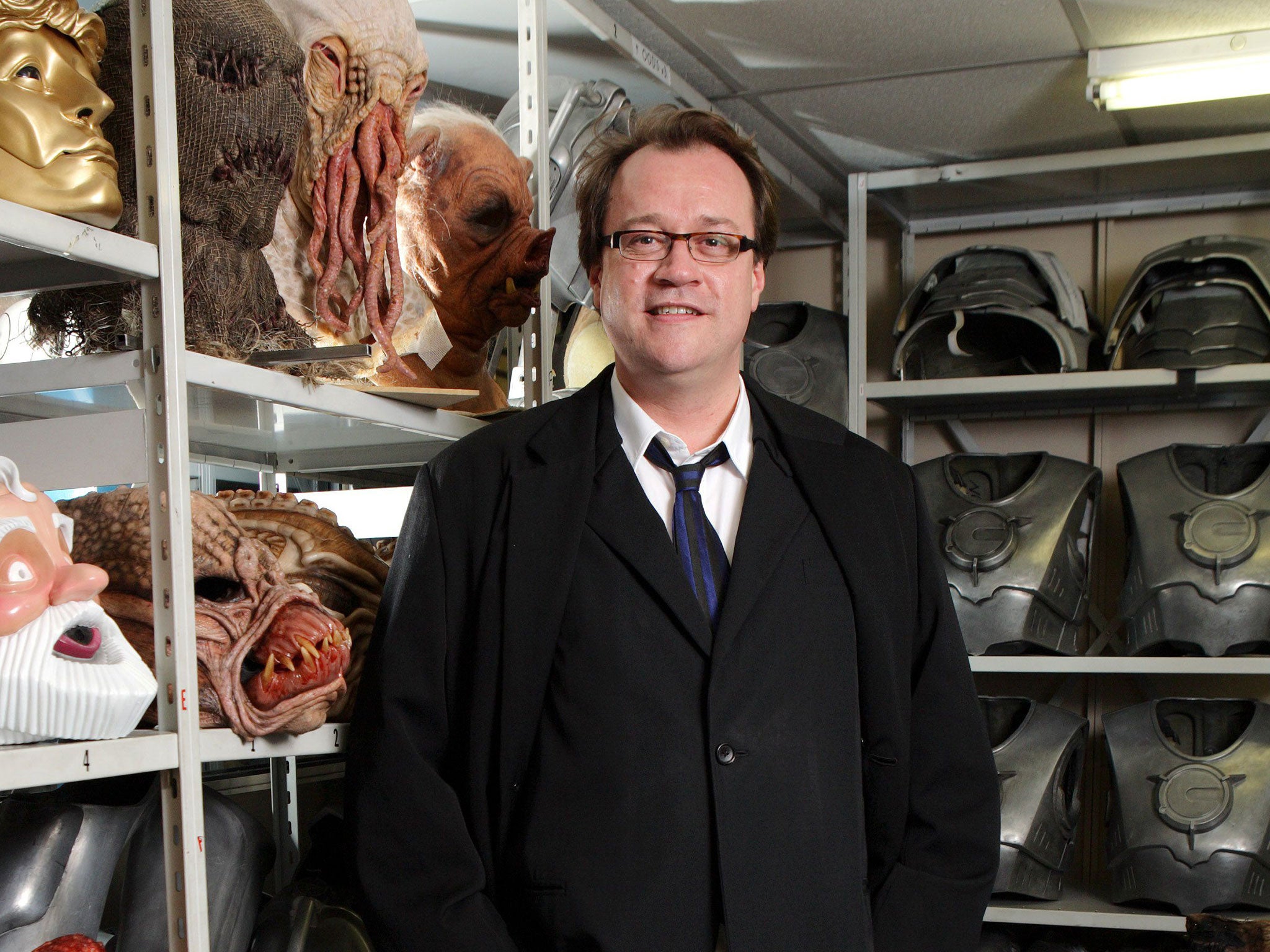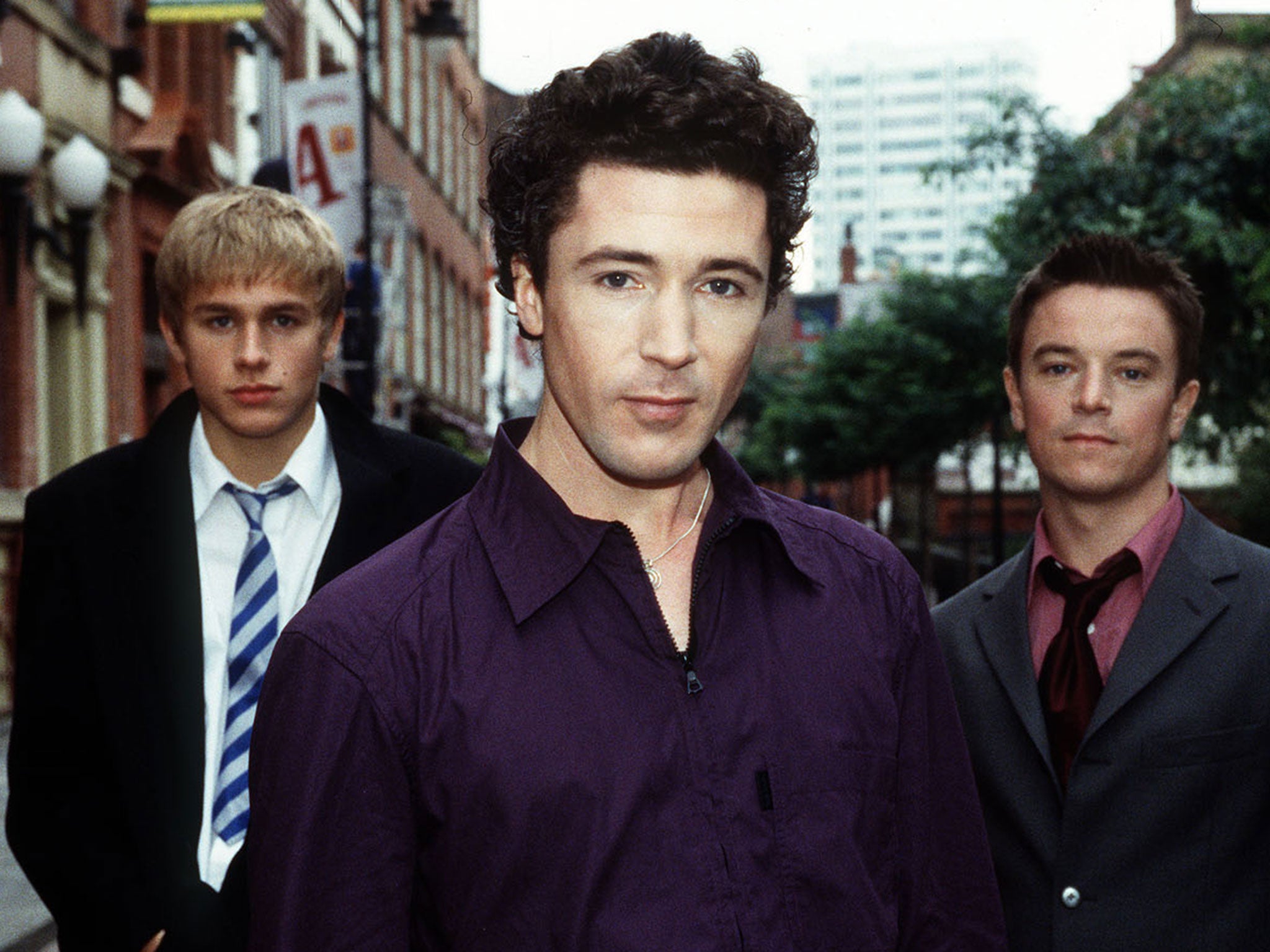Your support helps us to tell the story
From reproductive rights to climate change to Big Tech, The Independent is on the ground when the story is developing. Whether it's investigating the financials of Elon Musk's pro-Trump PAC or producing our latest documentary, 'The A Word', which shines a light on the American women fighting for reproductive rights, we know how important it is to parse out the facts from the messaging.
At such a critical moment in US history, we need reporters on the ground. Your donation allows us to keep sending journalists to speak to both sides of the story.
The Independent is trusted by Americans across the entire political spectrum. And unlike many other quality news outlets, we choose not to lock Americans out of our reporting and analysis with paywalls. We believe quality journalism should be available to everyone, paid for by those who can afford it.
Your support makes all the difference.It opens with a gay man pushing his trolley around the supermarket as he compares various foodstuffs to different types of erection – and its phallic title leaves us in no doubt that sex will be a central theme. Cucumber is the new eight-part drama by Russell T Davies; screening on Channel 4 later this month, it will be part of Davies’s three-pronged exploration of contemporary gay life, alongside E4 sister drama Banana and online documentary series Tofu.
It arrives on our screens 16 years after Davies’s first gay series, Queer As Folk, which told the story of Stuart, Vince and Nathan, three Mancunians caught up in a drama that explored teenage sexual awakening, friendship and unrequited love. For many straight viewers, much of its appeal was that it revealed for the first time what gay life was like. The much-discussed first episode featured graphic images of anal sex and rimming and subsequent storylines involved drug-taking, homophobia and internet hook-ups.
In a Britain that’s now much more gay-aware, however, Cucumber can’t rely on its predecessor’s shock value to attract a mainstream audience. (Though that’s not to say that the series doesn’t have fun updating the reality of the gay experience; just minutes into the first episode, Grindr and Tumblr make an appearance, shortly followed by a discussion of gay marriage.) But, thanks to brilliant writing and terrific performances, the drama of Cucumber is at least as good, if not better than, its predecessor.
The series revolves around 46-year-old Henry (Vincent Franklin, best known as The Thick Of It’s PR guru Stewart Pearson), and his boyfriend Lance (The Bill star Cyril Nri). The couple have been together for nine years and live a cosy life among friendly neighbours in the suburbs, something that wouldn’t have been possible in Queer As Folk. But, having been brought up in a pre-Queer As Folk world, Henry has been conditioned to feel ashamed of being gay and can’t overcome his self-loathing enough to have sex with his partner.

When Lance suggests they get married, Henry refuses and the relationship breaks down. But it’s when Henry moves in with his much younger gay work colleagues, including the dishy Freddie, played by Freddie Fox, that the drama really takes off.
What’s perhaps most surprising about Cucumber is that in 2015, a TV drama that puts gay characters centre-stage is still a novelty. Every major British soap now has at least one gay character who regularly features in major storylines, and reality television shows, from Gogglebox to The Great British Bake Off, regularly have gay contributors. But, apart from a few notable exceptions, including other Russell T Davies shows Doctor Who and Torchwood, gay men and lesbians rarely feature in long-form drama.
It’s often said that we need gay characters on the telly whose sexuality is incidental to the show’s main storyline. But at the same time, given that no one’s sexuality is unimportant to their life, shouldn’t we also have dramas that explore the stories of characters whose gayness isn’t incidental?
Most gay people in Britain have an interesting story. The average gay life involves the emotionally charged experience of coming out and is likely to have involved some level of social or parental rejection. In the 1980s the gay community lived through the devastating Aids epidemic and you only need to rewind 50 years – or 35 in Scotland and Northern Ireland – to reach a time when all gay men were branded criminals. Now doesn’t that sound like rich source material for drama?

What was striking about the recent film The Imitation Game wasn’t just the incredible story of Alan Turing, the man who helped the Allies win the Second World War by cracking Germany’s Enigma code, only to find himself chemically castrated for being gay. It was the epilogue that informed us that the 1885 Criminal Law Amendment Act, criminalising homosexual activity, led to 49,000 gay men being convicted of gross indecency in the UK. If you subtract Turing and Oscar Wilde from that total, that’s 48,998 stories that still haven’t been told.
Many people in Britain don’t know that during the Second World War the Nazis sent gay men to the concentration camps alongside the Jews – and once those camps were liberated, most gay men weren’t freed but re-arrested and locked up in prison. While several dramas have been made documenting the suffering of the Jewish people during the Holocaust, other than Martin Sherman’s Bent, you’d struggle to find a gay Holocaust drama. Why aren’t television execs commissioning these?
One of the reasons commonly given for overlooking gay characters in drama has been the need to appeal to mainstream audiences. So, any exploration of gay experiences on terrestrial channels must be careful to offer points of connection to people from other communities. HBO’s Looking, which will soon return for a second series on Sky Atlantic, told the story of three gay friends living in San Francisco. I was a fan of the first run but it wasn’t a ratings hit – perhaps the lives of the central characters too often felt divorced from any wider social context and there were few straight or even female characters in the supporting cast. The show’s setting in a famously gay American city may have added an extra layer of disconnection for straight British viewers.

Cucumber offers them much more with which to engage. Comparisons are often made within the narrative between the gay characters featured and their straight counterparts – but this is never heavy-handed. And its middle-aged protagonists don’t just struggle with relationships but with the ageing process, too: they’re horrified by the deterioration of their bodies yet are relieved to find their sex drives diminishing. They become cantankerous around young people yet are intrigued by the minutiae of their lives (“They don’t have a TV!”).
In any case, I fundamentally disagree with the idea that the public will only watch TV series featuring characters with lives similar to theirs. No one would argue that a Holocaust drama would appeal only to Jewish viewers. Surely one of the greatest pleasures of experiencing drama in any form is the opportunity to change nationality, ethnicity, gender, or sexuality and discover how other people live? Or maybe it’s easy for me to say that; as a gay man growing up in the 1980s, I had no choice but to engage in the stories of people very different from me.
It’s partly for this reason that since I began writing fiction I’ve felt a duty to create well-rounded gay characters and to explore their experiences in my novels. So far I’ve found this easy, not just because there are so many richly dramatic gay stories to tell but also because so many of them have been ignored. Hopefully Cucumber will go some way to changing this situation by attracting a large audience and proving to TV commissioners that there is mainstream interest in the lives of LGBT people. If it does, it might just finish the job started by Queer As Folk.
‘Cucumber’ begins on 22 Jan at 9pm on C4, and ‘Banana’ at 10pm on E4. Matt Cain is the former Culture Editor of C4 News. His debut novel ‘Shot Through the Heart’ (Pan Macmillan) is out now

Join our commenting forum
Join thought-provoking conversations, follow other Independent readers and see their replies
Comments